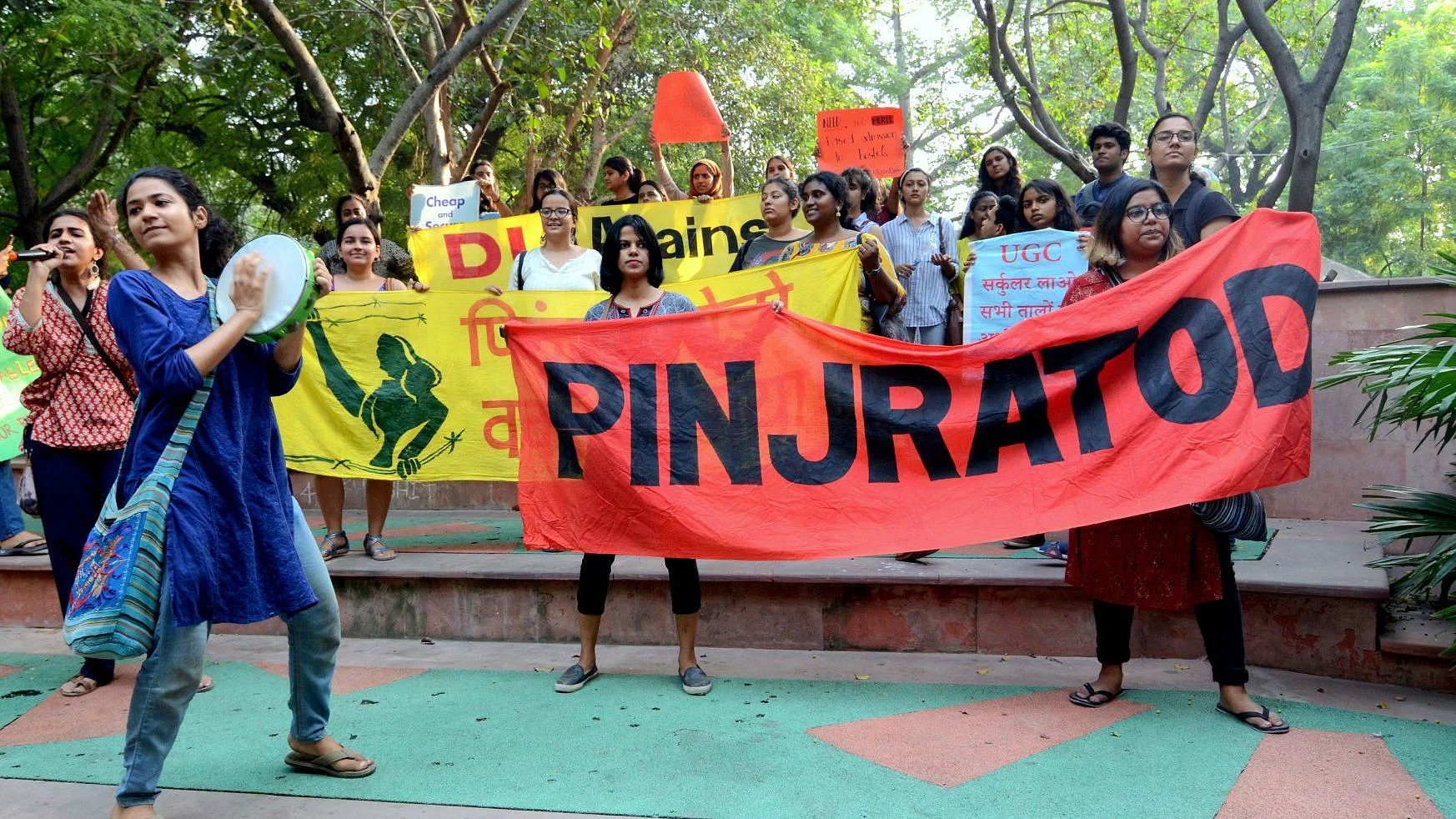For every girl from middle or lower-income families, it is often a dream to be free of at least some of the restrictions that surround her. I too badly dreamt of an opportunity that I got only during the two years of my post-graduation. I did my post-graduation at Thiruvananthapuram, the capital of Kerala.
Thiruvananthapuram is a great city where culture, history, politics, and urban-rural life blend well. Though I lived for two years in the city, I barely enjoyed the nightlife of the city. I, along with the other female hostelers used to envy our Thiruvananthapuram dwelling friends who used to tell us about their experiences with the new novelties of the city.
I was put up in a private hostel where 6.30 pm was the set curfew no matter what. I still cannot forget the blatant face of my hostel warden towards girls who came later than 6.30 pm. I too had faced the same wrath when I would occasionally be late by a few minutes.
There was a sort of public shaming in front of everyone resident in the hostel, reiterating the moral requirements a female is bound to meet, every time one of us missed the curfew. Thus, we unconsciously developed a responsibility to come no later than 6.30.
Christmas, Onam, and Diwali all came and passed by. The lighted pathways, steam-blowing street food, and everything else out there were lost in the time zone of our hostel. Even now, I remember the panicking face of my friends while searching for critical books on the shelves of our university library or while picking up food packets from the marketplace, just because the time was close to the hostel curfew.

In total contrast to this caged life, our male counterparts roamed and enjoyed the sight, taste, and scent of the place. They encountered better experiences with the city that we could only dream of. To them, every corner of the city was a familiar space and I noticed how they missed the place after our study days. But to us, the city still remains an unsavoured delicacy.
These incidents always kept me thinking: why is it that patriarchy is toned, trimmed, and groomed by women wardens in hostels? The warden along with the wives of the hostel investors took the liberty to advise the female inmates to appear modest even when they are inside the hostel. They would keep repeating that only then would the males from good families be attracted to us.
During the last few months of my hostel life, the new law regulating the curfew of all female hostels in Kerala to 9.30 pm was announced. It made big news in the media, but, most of the students knew that it will never be executed everywhere equally. Our hostel continued to function in complete oblivion of the new regulations
Special private counseling and advice were also dispatched free of cost by our warden for horning the so-called ‘feminine morality‘. But this urge to discipline was not seen in the administration of the hostel. We also witnessed a severe food poisoning incident which they keept a secret until a few students informed the food inspector.
These tiny and visible acts, clothed in care and motherly affection penetrate deep into the female psyche as mandatory conventions of society. At least a sufficient number of students thought it right to follow these restrictions as such.
For the others, it was a form of regressive practice and they tried to break it every now and then through their dressing preferences, body language, and the like. Here, the thing that is to be considered is not only how disciplining works on the female psyche, but also how it shapes the economy of the hostel.
Also read: Curfews, Dress Codes, Surveillance: Hostel Restrictions For Women Reflect Deep-Rooted Gender Bias

The referred private hostel was one of the oldest and most famous lodgings for women, often seen as a second home by many parents. The administration also took an effort to maintain this talk in many ways. The religious orientation of this institution also created an image of untainted safety and regulations.
During the last few months of my hostel life, the new law regulating the curfew of all female hostels in Kerala to 9.30 pm was announced. It made big news in the media, but, most of the students knew that it will never be executed everywhere equally. Our hostel continued to function in complete oblivion of the new regulations.
There is a common consensus that we could clearly delineate from this. The discrimination in the rules meant for females and males is problematic, to say the least, and also prompts us to think: ‘who determines the curfew for females?’, and ‘what is the nature of that authority?’
But there were some disparities in the statement of this regulation itself. It clearly stated that this curfew extension is only given to utilise libraries and lab facilities for females. This clearly denies the usage of this time for non-educative purposes verbally, as if to warn females. At the same time, it leaves out the male sex completely, even without mentioning how this rule should work for them.
“I see the decision to extend the curfew in women’s hostels as a very welcome one. In CUSAT, the curfew time is 11 pm if you are a research scholar and 8 pm for other students. Although the rules are enforced for female students, the same curfew is not enforced for male students. In such a situation, this decision will bring about a very necessary change by eliminating the need for female students to compulsorily carry late passes. It took a lot of effort struggles to bring about this action,” said Jayashree Kuniyath, Research Scholar at the Cochin University Of Science And Technology.

There is a common consensus that we could clearly delineate from this. The discrimination in the rules meant for females and males is problematic, to say the least, and also prompts us to think: ‘who determines the curfew for females?’, and ‘what is the nature of that authority?’
Throughout my hostel life, I have felt restricted into a hostel cage. Even now, the said hostel works with the old timings. But I feel happy for those women who can afford to study abroad, or in different cities and live in freer institutions, for at least they can enjoy freedom just like male students do everywhere.
Also read: ‘Mission Trousers’ Against The Body & Dress Policing In Our Hostel Mess
About the author(s)
Vidhu (she/her) is an emerging writer with Masters in English language and literature, keen on learning the politics of the world around her. She has dreams to create a career in journalism and writing, where she unburdens her self. She has a great taste for movies from varies geographical spans and pens down poetry in magical charms. She is open to projects or research centring on humanities.





